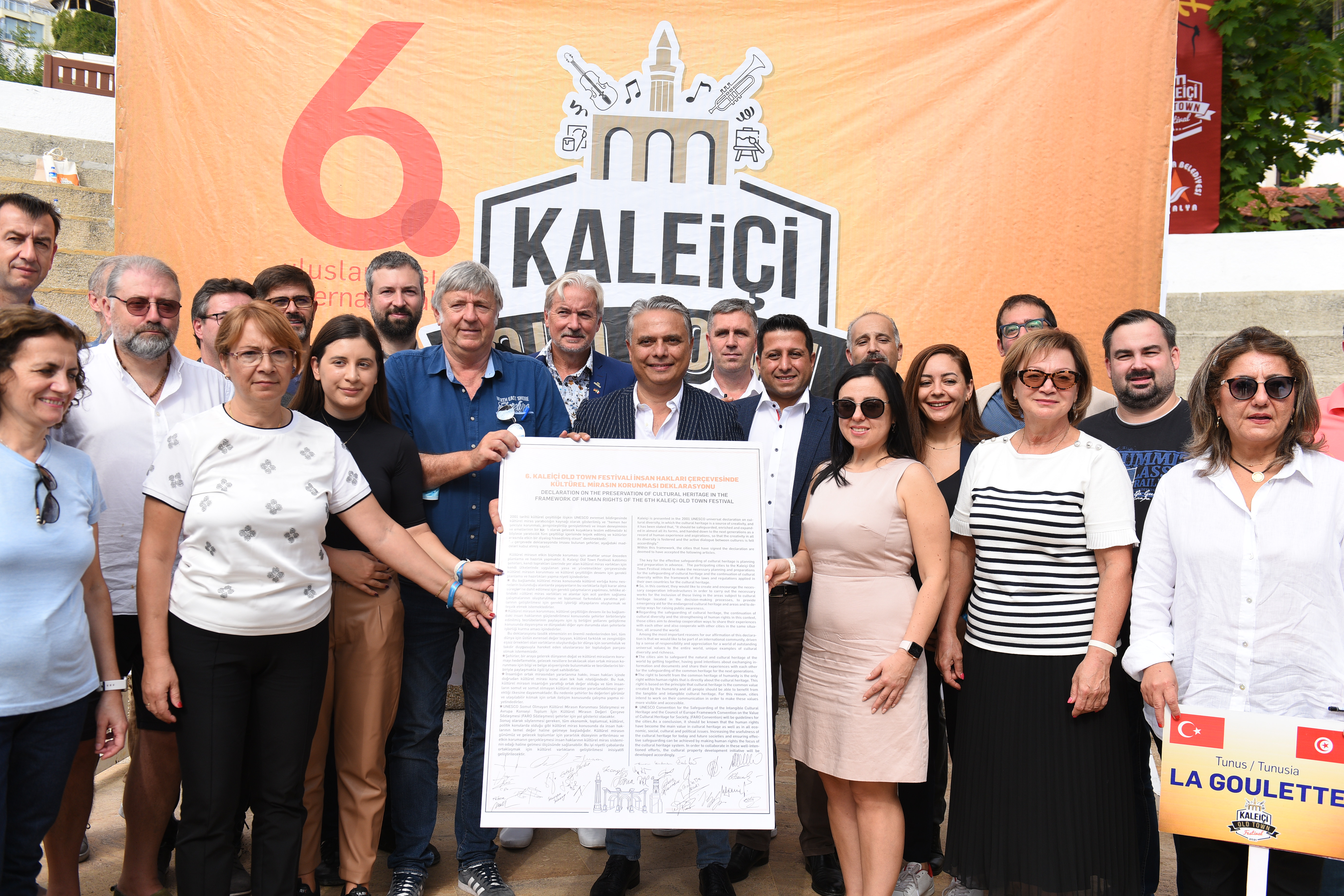 DECLARATION ON THE PROTECTION OF CULTURAL HERITAGE IN THE FRAMEWORK OF HUMAN RIGHTS OF THE 6TH KALEICI OLD TOWN FESTIVAL
DECLARATION ON THE PROTECTION OF CULTURAL HERITAGE IN THE FRAMEWORK OF HUMAN RIGHTS OF THE 6TH KALEICI OLD TOWN FESTIVAL The 2001 UNESCO World Declaration on Cultural Diversity identified cultural heritage as a source of creativity and included the following sentence: "It should be preserved, enriched and expanded in almost all its forms and as records of human experiences and aspirations, so that creativity in all its diversity is fostered and active dialogue is felt interculturally".
In this context, the cities that have signed the declaration are considered to have accepted the following articles.
- Advance planning and preparation are key elements for the effective preservation of cultural heritage. The participating cities of the 6th Kaleiçi Old Town Festival are obliged to make the necessary planning and preparations for the protection of cultural heritage and the preservation of cultural diversity within the framework of the laws and regulations in force in their respective countries for the cultural assets located on their own land.
- In this context, the aim is to build and promote the necessary cooperation infrastructures to involve the inhabitants of the areas where the cultural heritage objects are located in the decision-making processes concerning these properties, to develop emergency aid measures for endangered cultural properties and areas, and to develop possibilities for social awareness-raising.
- Cities seek cooperation with other cities in the same situation in the world to develop cooperation opportunities to share their experiences in protecting cultural heritage, perpetuating cultural diversity and strengthening human rights in this context.
One of the most important reasons why we support this declaration is our desire to be part of an international community that acts with a sense of responsibility and appreciation for a world of beings that are of outstanding universal value to the whole world and are unique examples of cultural diversity and richness.
- Cities are joining forces to protect the world's natural and cultural heritage. They have good intentions to exchange information and documents and share their experiences with each other in order to protect the common heritage that will be left for future generations.
- The right to benefit from the common heritage of humanity is the only human right that directly relates to cultural heritage. This right is based on the principle that cultural heritage is the common value created by humanity and that all people should benefit from tangible and intangible cultural heritage. For this reason, cities want to work on common communication to make these values visible and accessible.
- The UNESCO Convention for the Safeguarding of the Intangible Cultural Heritage and the Council of Europe Framework Convention on the Value of Cultural Heritage for Society (FARO Convention) are guiding and binding for cities.
In summary, human rights have become a fundamental value in cultural heritage as well as in all economic, social, cultural and political issues.
Increasing the benefits of cultural heritage for present and future societies and achieving effective protection can be achieved to the extent that human rights become central to the cultural heritage system. As a partner in these well-meaning efforts, the Cultural Heritage Development Initiative should be developed.
The UNESCO Convention for the Safeguarding of the Intangible Cultural Heritage and the Council of Europe Framework Convention on the Value of Cultural Heritage for Society (FARO Convention) are guiding and binding for cities. To partner in these well-meaning efforts, the cultural heritage development initiative should be developed.